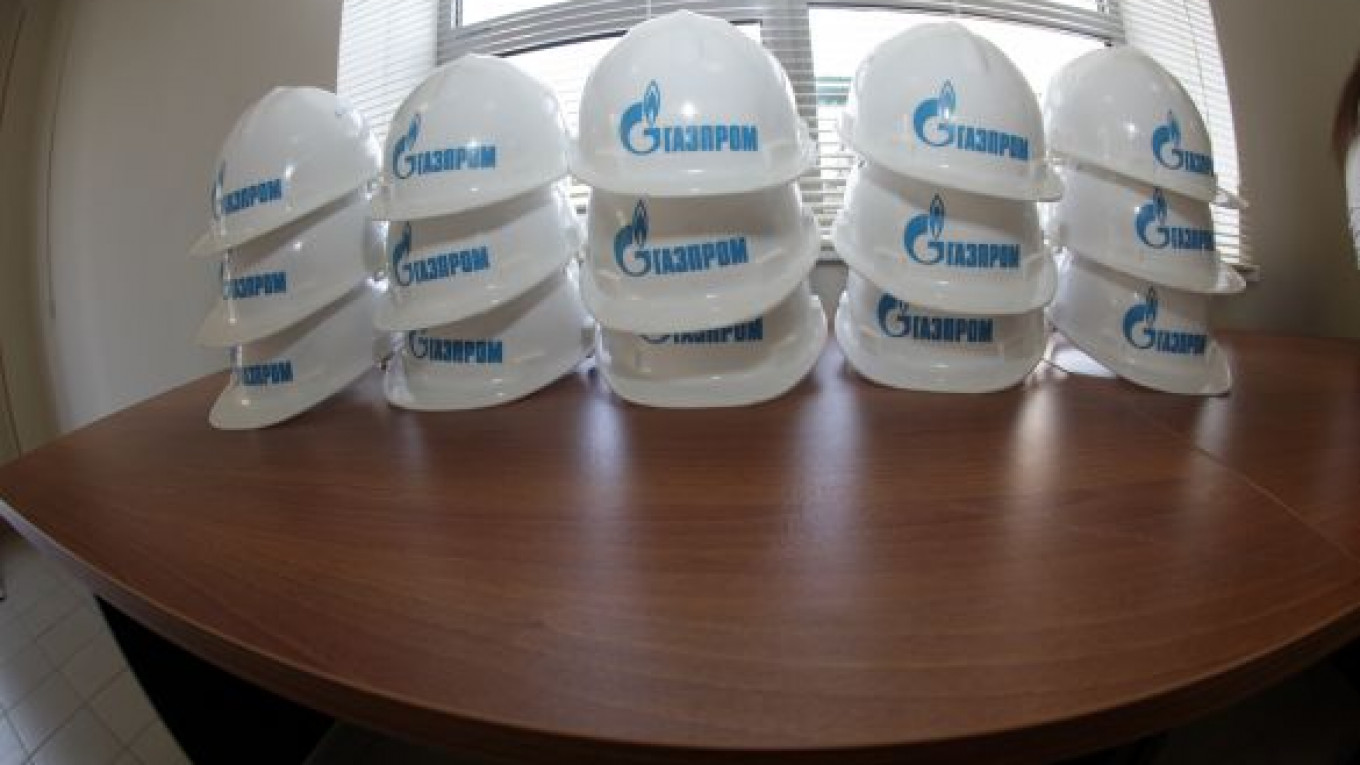Russia must abide by the European Union's internal market rules and stop offering widely varying prices to its member states, EU Energy Commissioner Guenther Oettinger said.
Oettinger's remarks are the latest turn in a gas pricing row between Russia and the EU that is becoming increasingly political.
The Kremlin on Tuesday banned its strategic companies, such as gas export monopoly Gazprom, from disclosing information to foreign regulators after the European Commission started an antitrust investigation into Gazprom's activities.
"The Russian partners have to accept our European Union rules," Oettinger told an energy conference in Vilnius on Friday, when asked about the Kremlin's decision.
Major natural gas exporters, such as Russia, Norway and Qatar, sell their gas mostly under long-term contracts that are linked to oil prices.
The European Commission is investigating Gazprom, which is more than 50 percent owned by the Russian state, over suspicions that it was hindering the free flow of gas across the EU and imposing unfair prices on its customers.
"All gas exporters, be it from Russia or Norway, Algeria or Qatar, have to accept our internal market rules," Oettinger said. "The Russian partners understand our rules, but they don't accept them all. It is a different culture."
Oil prices have remained stubbornly high despite the weak global economy, squeezing European power and gas suppliers that have buy at prices linked to oil and then sell to their customers at lower retail prices.
Gazprom, the world's biggest exporter of pipeline gas, and Qatar, the leading exporter of liquefied natural gas, have given in to customer pressure in recent weeks and reduced their prices in renegotiated contracts.
"Vladimir Putin knows very well that Russia has to accept the rules of our internal market with 500 million consumers. It's the biggest business case for Gazprom," Oettinger said.
The European Union receives more than a quarter of its gas from Russia, but Gazprom is even more reliant on European revenues, with about 80 percent of its gas being sold to Europe.
Russian Prices Must Vary Less
Oettinger also said that Russian gas prices to the EU member states should not vary greatly. "It can't be that [Russian] gas in some member states is up to 30 percent cheaper than in other member states," he added.
But Oettinger added that the EU's move was not designed to punish Gazprom. "It's not an instrument against Gazprom," he said. "We want to continue our relationship with Gazprom … with equal conditions for each member state," he said.
Lithuania, where Oettinger made the comments, totally depends on Russian gas imports and has long complained that Gazprom charges it higher prices than it does for Germany, despite the gas having to be transported for a shorter distance.
The Baltic state was one of the countries to have asked the European Commission to look into Gazprom's pricing policies. Its government has also been fighting to diversify its energy supplies and implement new EU rules on gas company ownership.
Lithuania has also said that it viewed higher gas prices as a punishment for its plans to implement EU gas market rules that will separate gas supply and transportation assets to allow more competition.
That move would mean that Gazprom, which owns a third of integrated Lithuanian gas utility Lietuvos Dujos, would have to give up ownership of gas transport pipelines.
Gazprom argues that this demand for "unbundling" would require a forced sale that amounted to expropriation and views its Lithuanian business as a test case for other parts of Europe.
Related articles:
A Message from The Moscow Times:
Dear readers,
We are facing unprecedented challenges. Russia's Prosecutor General's Office has designated The Moscow Times as an "undesirable" organization, criminalizing our work and putting our staff at risk of prosecution. This follows our earlier unjust labeling as a "foreign agent."
These actions are direct attempts to silence independent journalism in Russia. The authorities claim our work "discredits the decisions of the Russian leadership." We see things differently: we strive to provide accurate, unbiased reporting on Russia.
We, the journalists of The Moscow Times, refuse to be silenced. But to continue our work, we need your help.
Your support, no matter how small, makes a world of difference. If you can, please support us monthly starting from just $2. It's quick to set up, and every contribution makes a significant impact.
By supporting The Moscow Times, you're defending open, independent journalism in the face of repression. Thank you for standing with us.
Remind me later.


